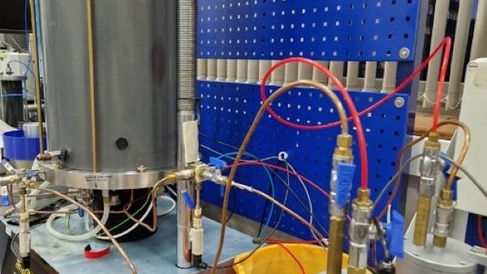
Dr Marina Bortolotto, research associate in construction support fluid at the Dept. of Engineering, University of Cambridge, recently delivered a CSIC research talk highlighting the challenges and limitations performing and interpreting temperature-controlled triaxial tests.
Based on her PhD studies at Imperial College London, Dr Bortolotto's talk emphasised the potential of thermal studies to practical applications, such as geothermal heating and cooling systems that can support the UK’s decarbonisation goals. Despite the widespread application of thermal loads, she highlighted a significant gap in research concerning thermal effects on granular soils. Even more striking, she noted, is the absence of standard protocols for conducting temperature-controlled tests, interpreting data, and managing uncertainties.
To address these challenges, a bespoke triaxial cell (MKII) was developed at Imperial. This advanced equipment enables measurements of hydraulic conductivity and thermally-induced mechanical (TIM) strains in granular geomaterials across different temperatures. Dr Bortolotto underscored the importance of characterising the thermal performance of MKII’s components to ensure its accuracy and reliability.
Her talk introduced and critically assessed non-isothermal and isothermal calibration protocols for the MKII cell, offering detailed guidance on test execution and data interpretation. While obtaining meaningful results proved to be a complex task, Dr Bortolotto believes that increased transparency and robust protocols could significantly enhance the quality and reliability of future research in this field.
Further readings:
https://www.issmge.org/uploads/publications/1/120/ICSMGE_2022-856.pdf
https://www.issmge.org/uploads/publications/121/122/isdcg2023-195-1-c.pdf
